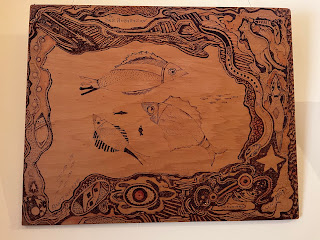Australijos Lietuvių
Studentų Sąjunga (ALSS)
The Australijos Lietuvių Studentų Sąjunga (ALSS)
was formed in 1952. Members were
university students or those studying at a higher professional level who have
completed a diploma. Branches were formed
in Adelaide, Melbourne and Sydney, Canberra had a eldership. An informal group met in Brisbane, Newcastle
and Perth.
 Tertiary students in Adelaide began to appear
soon after post WWII arrival, in the early 1950’s. Stasys Čibiras instigated the establishment
of a group in Adelaide. Officially began in 25 August 1951. The group rose in number to 13 members by the
time the first formal gathering was called on 19 April 1952. On this day a committee was elected which
consisted of Stasys Čibiras as president, Algis Navakas and Nemira Šiunaitė.
Tertiary students in Adelaide began to appear
soon after post WWII arrival, in the early 1950’s. Stasys Čibiras instigated the establishment
of a group in Adelaide. Officially began in 25 August 1951. The group rose in number to 13 members by the
time the first formal gathering was called on 19 April 1952. On this day a committee was elected which
consisted of Stasys Čibiras as president, Algis Navakas and Nemira Šiunaitė.
The group aimed to actively participate in
the Adelaide Lithuanian community and to keep ties with other Australian
Lithuanian students. A two shilling
membership fee by each member was invested so dance evenings could be
held. Ten years later the number had
risen to 50 students and 24 graduates.
Adelaide instigated the first Australian
student gathering which was held in Sydney in 1956. Others were held in 1958 and 1962.
ALSS Adelaide Branch Committee
1957
Romas Urmonas President
Dalia Levickaitė
Sigitas Martinkus
1958
T Žurauskas President
J .Arminas, V. Giruckas, D. Varoneckaitė, Antanas
Lapšys.
This committee formed the central committee
and organised the ALSS gathering. 12 new
students enrolled in university that year.
1962
Antnas Stepanas President
J. Martinkutė, Rimas Daugalis, and Ramunas
Dunda.
1964
Juratė Naujalienė President
Laima Radzevičiutė, Violeta Vasilauskaitė, Rimas Daugalis ir Gytis Šimkus
1965
Vytautas Straukas President
Emilija Matiukaitč, Laima Radzevičiutė
1966
Gytis SImkus President
Rasa Pacevičiutė, A. Radzevičiutė
1967
Vytas Straukas President
A. Tugaudyte, A. Radzevičiutė, K. Baškutė,
V. Vanagas
This committee became the national committee and organised the Adelaide national
gathering.
The committees organised Initium and Finis Semestri, Žirnius ir
aluti, outings to the countryside and readings and discussion evenings.
 The committee pushed the Kūlturos Fondo (Cultural Fund) to
instigate a Lithuanian course in Adelaide.
The students donated copies of the groups newsletter Lituanus to the Barr Smith Library.
The committee pushed the Kūlturos Fondo (Cultural Fund) to
instigate a Lithuanian course in Adelaide.
The students donated copies of the groups newsletter Lituanus to the Barr Smith Library.
.JPG)
.JPG)

.JPG)
.JPG)







